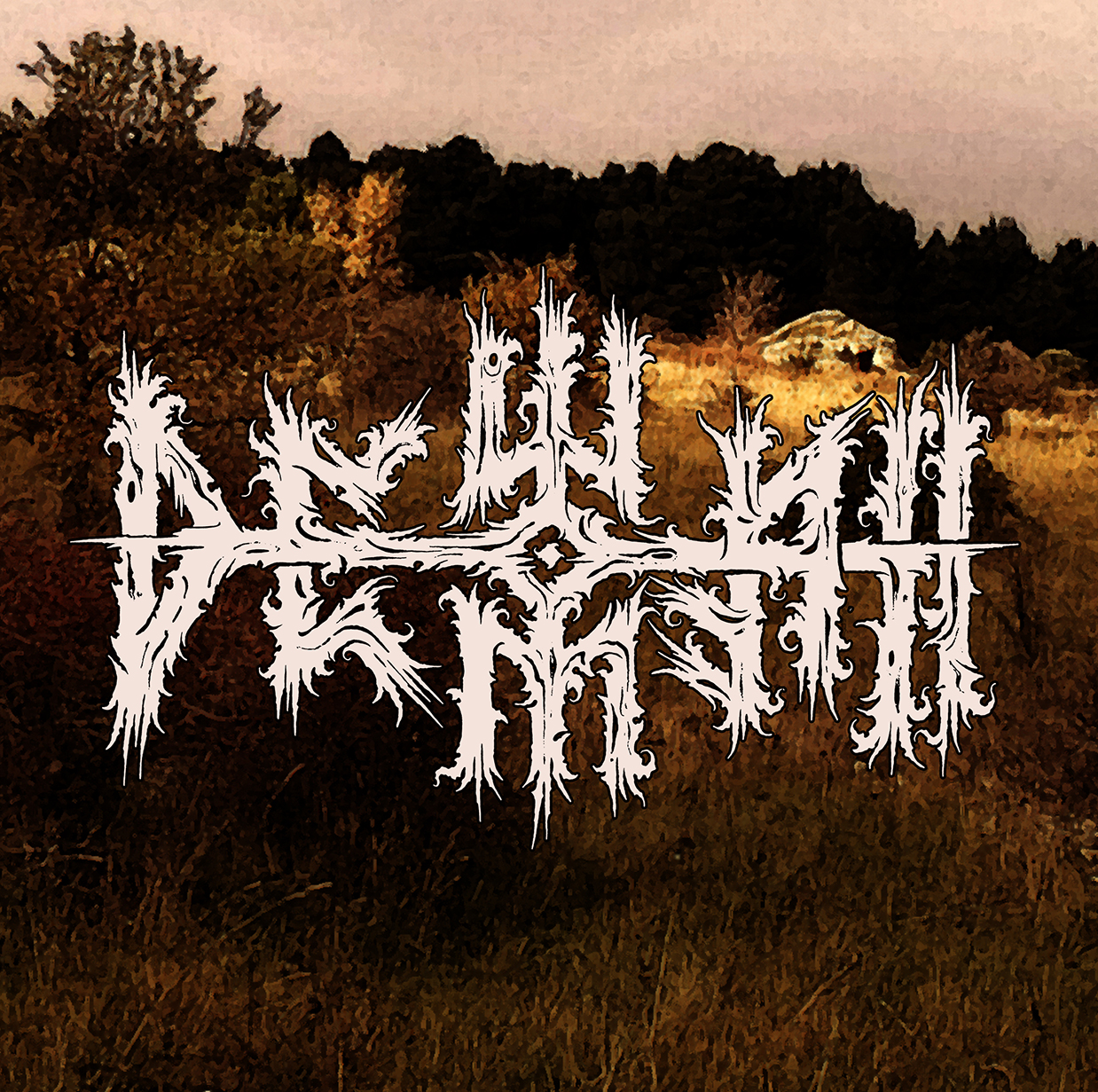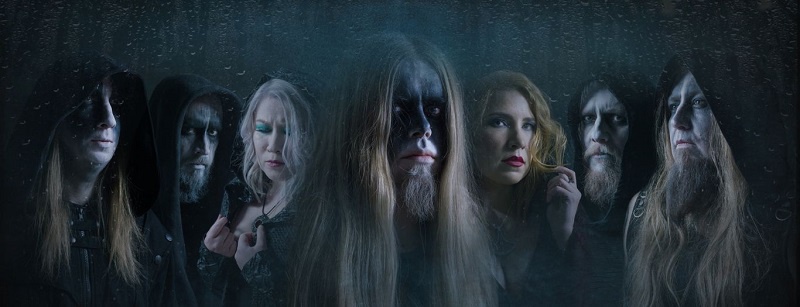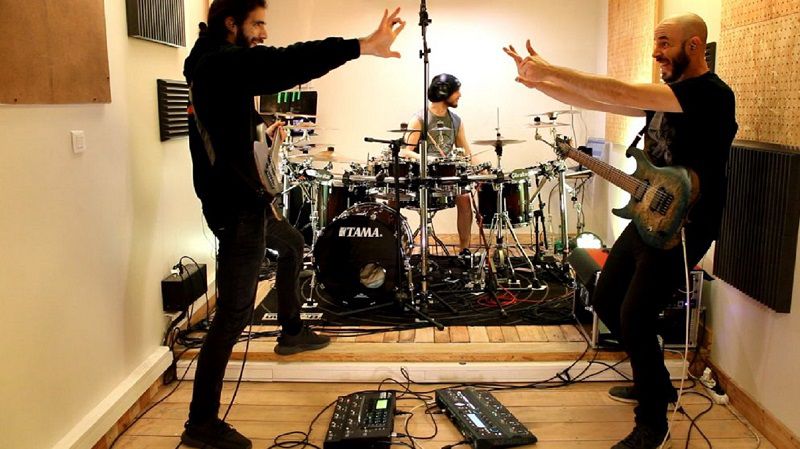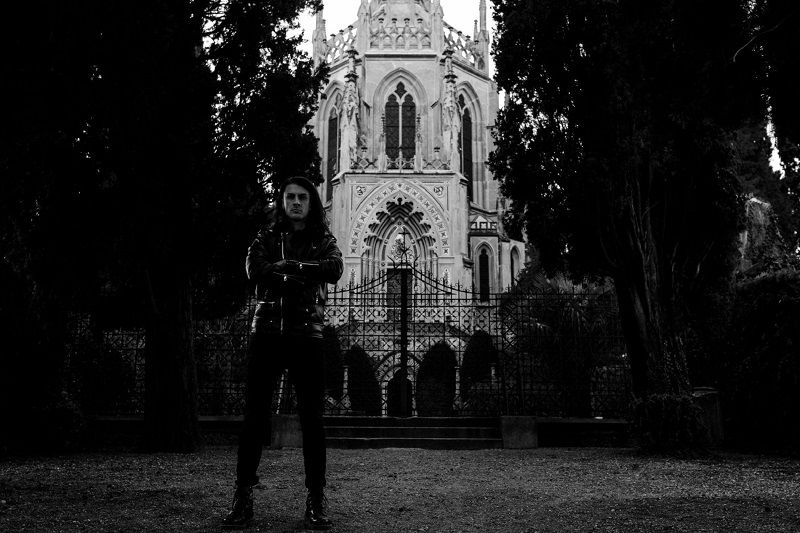Dewfall – Interview
12 min read
Italian melodic black metallers Dewfall returned to the arena last autumn following a five-year recording sabbatical, with their second full-length, Hermeticus, released via Naturmacht Productions. Putting aside the dismal reality that underground musical endeavors often have to be balanced with full-time employment and other commitments, it is easy to see why this complicated work might have spent a long time in the forge. The Grim Princess joined Dewfall’s longtime guitarist and mastermind Flavio Paterno and vocalist Vittorio Bilanzuolo to take a track-by-track look at Hermeticus, its origins, symbolism, and the enigmatic historical figure at its heart..
Grim Princess: On behalf of Blessed Altar Zine, thank you for agreeing to this conversation with us after what must have been quite a momentous year in your lives – the completion of the album, its release in October, and then the tour. What are you doing right now?
Flavio Paterno: Grateful for the attention you’ve dedicated to Dewfall and Hermeticus. Definitely, 2018 was a moment of harvest, now we own the crops of what has been seeded in the previous cycles. Meanwhile, it’s time for gathering on new fields and making the land fertile for the future.
GP: We shared our review of Hermeticus with you a few days following its release, after rating it highly. Right from the start, the overall sound and concept were too interesting not to explore, and it has been a pleasure to spend time with the album. It’s clear that you are deeply invested in your creation, that it has been planned down to the smallest detail, so I don’t think you’ll mind if I ask some very specific questions about it during the course of our conversation.

Firstly, though, a few more general ones to help newcomers to understand the work we’re talking about. Hermeticus seems to be a kind of exploration of your heritage through the lens of the mythical corpus surrounding the ruler and polymath Frederick II: a figure who has had a lasting impact upon Italian culture, and in fact, on the very landscape that is your home (especially the Castel del Monte, which graces the back cover of the album). Could you say a little bit about what compelled you, personally, to tell this story – what your own relationship is with its elements? Does your attraction to it go back many years?
FP: When we went through your review of Hermeticus we remained enthusiastically touched. Apart from the positive impressions, which we appreciated a lot, the commitment in the deep analysis and amazing decoding of our work confirmed the importance of telling about the myth of the ‘Stupor Mundi’ the way we’ve done. The whole album is an intimate metaphor narrating the ancient hermetic heritage of our homeland. Nature, history and literature merge and connect with an atavistic heathendom, tributing a symbol of our culture, the so called ‘Puer Apuliae’, for the first time in the extreme music contest. And you’ve got the gist, relations with the main character and his milieux roots in my academic studies of many years ago and a weird story brushing my ancestors. But everything has been enhanced with a further personal involvement in several related interests and personal experiences.
GP: The album begins with ‘The Abomination Throne,’ the most progressive-sounding track, with the flute emulating the cry of the falcon and that really striking acoustic sound that becomes more and more unhinged until finally it’s resolved in the dramatic passage featuring Davide Straccione (Shores of Null, Zippo). His contribution sounded really organic to me, and on the first listen I actually thought it was Vittorio because the two vocal styles complement each other so well. This is a part Davide sounds born to play. How did it all come about?
VITTORIO BILANZUOLO: I would love to have such vocal capabilities [laugh], but your consideration about the “organic” feel you got from this featuring confirms me that the insertion of such clean vocals was a good idea.
All the time I was listening to ‘The Abomination Throne’ in my mind, I’ve always thought “You know what… Warrel Dane [R.I.P.] should be perfect to sing this part!” [laugh] – and then my mind started to wander about who among our music network could be suitable for such interpretation, and the choice fell on Davide, who made it in perfect shape. I’m really satisfied about the final product, and I’m really happy almost everyone considers it as a ‘really-adding-value’ featuring.
GP: The thing that struck me with the next track, ‘Murex Hermetica,’ was your ability to imbue nostalgia, history, into the song – seemingly entirely with the use of structuring (rather than, for example, the use of synths): one section will anticipate another that occurs later on, and so there is this feeling of déjà vu, of circularity (actually I think the last line is ‘Beware, there’s no way out’!). We also see the first occurrence of Latin in the verses, which Vittorio manages to deliver in a really convincing and pretty terrifying way. You mention in the album’s description that medieval Italian poetry also features on the album. How were these fragments chosen, and where do they come from?
FP: The feelings of nostalgia you describe are the same I experienced while composing this song, and chorally shared while structuring, playing and performing it live. Our songwriting is mainly plug and play and guitar oriented, that’s because you won’t find synths for that purpose. Like an ancient medieval codex, in which there weren’t numbers on pages to guide the reader, in Hermeticus we tried to sign the path with this circularity you highlight, with music and of course with words and formulae. While the first track ‘The Abomination Throne’ introduces the figure of the Emperor with a biblical prophecy of the incoming Antichrist, ‘Murex Hermetica’ is the first real step into the hermetic landscape of Apulia, where everything happened and where the listener will stay spellbound. As this song carries a huge wilderness and had to sound very evoking, ancient and direct, I’ve chosen to write lyrics mainly in Latin to adorn it with a much more Italic blend, fitting with Vittorio’s vocal attitude, like in ‘Apud Portam Ferream’. Medieval Italian Poetry inserts appear on the third song, ‘Monolithic Dome’, where we’ve dared to sing some of the original verses of the poet Frederick and his dictator Pier delle Vigne (Sicilian School and Provençal Lyric).
 GP: So there is a range of voices and tongues spoken on this album: towards the end of ‘Monolithic Dome’ – which sounds almost like a dark ballad to the Castel del Monte, though I haven’t got the lyrics – there is what seems like a struggle, musically, which then climaxes in a section that gives the impression of a duet between Vittorio and what I thought sounded rather like a lonely cleric singing into a void… this voice is present on a few of the songs: what does it represent?
GP: So there is a range of voices and tongues spoken on this album: towards the end of ‘Monolithic Dome’ – which sounds almost like a dark ballad to the Castel del Monte, though I haven’t got the lyrics – there is what seems like a struggle, musically, which then climaxes in a section that gives the impression of a duet between Vittorio and what I thought sounded rather like a lonely cleric singing into a void… this voice is present on a few of the songs: what does it represent?
FP: Mine is the voice you hear as an echo in the void [laugh]. I used to appear with some cameos in our albums, due to an inner purpose which emerges in what you call ‘climax’. And yes, many tongues, many voices, many interpreters. We know from historical sources the ‘Court’ of the Stupor Mundi was an eclectic one, as well as multicultural and multidisciplinary. So the imperial entourage was embellished by many characters, artists, intellectuals and scientists coming from distant lands. Daring a certain parallelism, we committed with recreating that scenery by using many languages, involving many artists from diverse European latitudes, who could infuse a peculiar identity to Hermeticus.
GP: One additional voice deserving a special mention: that of V’gandr (Helheim, Taake) on ‘Apud Portam Ferream.’ What is the story of the song, and what is the reason for his part in it?
FP: This is a story of poison, treason, fate and metempsychosis. This song is the occult tale of a deadly prophecy: ‘Sub Flore, Apud Portam Ferream’. This had to foretell Michael Scot, one of the darkest medieval astrologist and alchemist, courtier of Frederick II, predicting the stage where the ‘Sol Mundi’ had to die. The prophecy in Hermeticus has been pronounced by V’gandr, a Norseman singing of Apulian mysteries, what a great cultural osmosis I must say! He also remarked the fascinating experience in exploring a different cultural heritage and sharing this common passion linked with ancient heathendom. And V’gandr already showed this artistic attitude in Helheim’s landawarijaR, within the title-track inspired by PFM’s ‘Impressioni di settembre’, a real masterpiece and homage to the Italian 70s progressive rock school indeed. I appreciate Helheim and Taake since many years, Dewfall had the chance to share the path with Taake many times during tours and festivals, so we met V’gandr personally and this cooperation was born in a cradle of mutual respect.
GP: This song marks the end of the first chapter of the album (‘Vivet Draco Magnus’), and we come full circle with the return of the flute reminding us of the opening track. We then cross over to the second chapter (‘Vitae Mortisque Mysterium’), which has its own very distinct character. Was it always the intention to divide the album like this? Certainly the intro on ‘The Eternal Flame of Athanor’ has a feel to it as if we’re embarking on something new, a spiritual (alchemical) transformation. And the bell at the end gives the impression of a death knell, that something has been completed (“consummatum est”) and now we are travelling downwards…?
FP: Yes, the narration is provided with two sides showing a recognisable difference in sound and codes. For this reason, when we ended the arrangements of the album, Vittorio suggested to divide the work in two chapters. So I thought about which could be the best verses in the lyrics resuming the both natures of the story. This way you can read now ‘Vivet Draco Magnus’ related with the legendary life of the Sovereign, and ‘Vitae Mortisque Mysterium’ connected with a much more esoteric and heathen concept of afterlife. ‘The Eternal Flame of Athanor’ discloses the spiritual path of the journey, describing the alchemical celebration of soul’s immortality and transmutation. When I visited “Castel Fiorentino” ruins (the imperial mansion where Frederick II died as for the prophecy previously mentioned), I saw an athanor was built inside the archaeological site…and alchemical elements are detectable within the song by educated ears! [laugh] While leaving that place, I saw a hawk flying over the deadly site…I received it as a special message…so I have chosen the traditional flute inside the album as voice of the Falcon which embodies Friederick’s spirit at the beginning, in the middle and at the end of Hermeticus. Playing this instrument was like breathing something magical and notes came in a very natural way. Once again, your attention to details is remarkable and gratifying!
GP: ‘Moondagger’ begins with a grimmer tone. There’s a wealth in symbolism contained in the lyrics, drawn from a number of different esoteric streams, and it’s not easy to decipher. What is happening here?
FP: Musically speaking, I believe ’Moondagger’ is the elected song within Hermeticus expressing our vocation to the ‘total songwriting’, flowing along ‘different streams’ as you say, and I like very much there’s this perception! This song and its lyrics are a hermetic formula encrypting the mystery of suicide, extremely intimate and unfathomably seated on the throne of the human subconscious. This theme has repeatedly belonged to the Federician legend within his courtiers.
GP: The subject matter explored on Hermeticus makes me wonder if you are spiritual, religious, curious.. or whether your interests are mainly scholarly?
FP: For sure we are very close to the dark side of existence. Curious and spiritually captured by secret of the Nature and aware of the power of myth, traditions and magics in exploring and decoding the truth, or at least what we perceive today as the exoteric sphere of knowledge. This we try to communicate with our artistic mission. And of course yes, I can say I have a peculiar calling for the topics we narrate, along a parallel path since my academic youth and even prior to it.
GP: On ‘Moondagger,’ what held us back from total desolation was those beautiful bright leads as the song developed. ‘The Course to Malkuth’ marches us straight into ‘the womb of the earth’ and there is nothing left of the triumph audible in ‘The Abomination Throne,’ which has the feel of a rising: alluding to the verses in the Book of Revelation in which the seven-headed beast rises out of the sea. ‘The Course to Malkuth’ is simple, has gritted teeth and clenched fists, and really conveys a feeling of density, which makes sense considering this is the sephirot of the material plane. It’s really quite different to the other songs. I’ve read that you have played the album in its entirety live: what has that experience been like? Do you get a tangible sense of the story unfolding when you are telling it live, or are you necessarily focused on lots of other things at the time?

VB: I’m really surprised how well you can get some patterns that are hidden in our album. We do our best to instill the story telling on the audience. I believe that people can “feel something” during our concerts, but you should have the preparation of The Grim Princess to get the complete picture [laugh].
All in all as you mentioned, our priority is indeed to try to perform a flawless show from a musical performance point of view.
GP: Finally, on ‘Apostasy of Hopes,’ in which it feels as if we’re now imprisoned forever, we meet the flute for one last time, which leaves us with the impression that although the hero has moved on, the bird of prey still circles – this lonely cry remains. When I think about how the individual songs feel circular, and not only this but the two chapters and the album as a whole, and then consider the downward movement of these ‘spheres,’ it seems that as a whole it is a perfect depiction of the Tree of Life in the Kabbalah. Is this album now the completion of your exploration of this area? Do you have an idea of what might come next on future albums?
FP: ‘Cecidit Sol Mundi qui lucebat in gentibus’. At certain stages of existence, hopes of mankind might feel like imprisoned in the Sheol. But you know… ‘Putrefactio unius est generatio alterius’. We will never stop walking across the Axis Mundi to find the key for unlocking the gates towards new horizons.
GP: In any case, metal has such a vast intellectual terrain you can play around in, compared to the poverty of mainstream genres.. Have you been inspired by other albums which have achieved similar things to what you were aiming for – any concept albums, or particularly atmospheric pieces?
FP: Being aware of the message to communicate and express with owned tools of art is of basic importance. Niche music often carries fascinating contents, but most of times it depends also on the single author. So I may refer as well to some other fields far from music or far from the ‘metal’ sphere to get some inspiring beats. Focusing on Hermeticus, it is a stand alone experience. It roots on old school European music tradition, infused by Mediterranean drama. It is a concept thinking of the historical events and epoch, but it’s a personal metaphor of myth, life and afterlife, an adventure along the naturalistic and symbolic itinerary of our homeland. Apulia has been the best atmospheric piece inspiring Dewfall.

GP: What are you listening to right now – have you been able to keep track of many new releases this year?
FP: I pay deep attention to the underground sphere, as my bandmates do. On my shelves underground CD towers are almost higher than the historical ones! The underground is the dimension to which we belong, the attitude we feel. At these latitudes listeners and supporters can feel the true essence of the music and arts and most of the time very talented and unknown bands stand hidden. I mean apart from the metal tunes, as I feel this within many musical and creative expressions. So my ears can receive noteworthy albums coming from new talented interpreters, and in this very age Italy can be proud of the releases which are nicely melting with a likewise international titles list.
GP: It only remains for me to ask you what your plans are for 2019, and whether we will have to wait aeons for another album..
FP: After having presented Hermeticus live with 7 shows dedicated to the Italian audience on autumn 2018, now we are working on our future scheduling to stage Hermeticus abroad when possible. And we are forging new songs too and working in force not to wait too much for the next opus. But time deserves respect, we feel it shall walk by our side!

With many thanks to Dewfall for their time and cooperation. Follow the band on Facebook, and buy ‘Hermeticus’ over on Bandcamp.
The Grim Princess
**Please support the underground! It’s vital to the future of our genre.
#WeAreBlessedAltarZine
#TheZineSupportingTheUnderground



